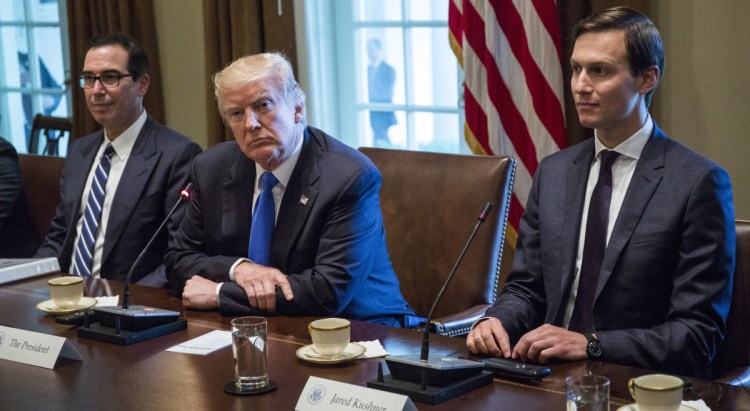I served as Peace Corps country director from 2008 to 2012. My first two-year assignment was in Micronesia and Palau. For the second two years, I managed the Peace Corps program in six small island nations in the eastern Caribbean. In order to be appointed to these jobs, I first needed top-secret security clearance.
This seemed excessive. Why would a Peace Corps country director need access to top-secret information?
It turns out the reason for the clearance requirement was that I was also a member of the U.S. Embassy team in the countries where I was working. In this role, I was invited to weekly or monthly team meetings in the secure section of the embassy.
“Secret” information might be discussed at these meetings, and they didn’t want to have to deal with tracking who had clearance and who did not. If you were on the senior embassy team, you were required to have top-secret clearance. There are tens of thousands of U.S. government employees worldwide who are required to have top-secret clearance.
An example of “secret” information that might be discussed at a team meeting would be if a U.S. Navy ship were patrolling in local waters. This turned out to be useful information to me if I had a Peace Corps volunteer on a remote island who needed an emergency evacuation for medical or severe weather reasons.
When I was being vetted, a government investigator came to Maine for several days and interviewed my neighbors and my colleagues. They also asked me to provide names of several people who had known me for over 10 years. The investigator interviewed these folks and also some people whose names I did not give them. I believe they also looked at my tax returns and other financial records.
I was told that the investigator was looking for “problems” – money problems, boyfriend-girlfriend problems, drinking and/or drug problems, extramarital affair problems, etc.
I was informed that if I had a drunken-driving conviction or a personal bankruptcy on my record, I would not have been approved. The reason for this is that people who have these types of problems are thought to be vulnerable to manipulation by foreign agents.
I had not thought much about all of this until the recent attention given to the inability of several high-level members of the Trump administration to obtain top-secret clearance. President Trump seems to have put together a team of rogues whose personal lives are rife with these types of problems. Consequently, they are not able to get top-secret clearance.
Then I started to think about President Trump himself. He is the poster child for these types of problems. Bankruptcies? Check. Girlfriend problems? Check. Extramarital affairs? Check. Questionable foreign business dealings? Check. Supposedly he does not drink, so he gets a pass on that one. However, there is no doubt in my mind that he would not qualify for top-secret clearance under the normal criteria.
This seems crazy to me. We give access on day one to our nation’s most sensitive secrets – not to mention the nuclear launch codes – to a person who, in any other senior government position, we would deem to be not trustworthy.
We require that in order to run for president, a candidate must have been born in the United States. Should we pass a new law that requires that the candidate must also be able to achieve top-secret security clearance? Is this not just common sense?
I propose we call this new law the “Trump Amendment.” This way, President Trump will have made at least one positive contribution to our future national security.
Send questions/comments to the editors.



Success. Please wait for the page to reload. If the page does not reload within 5 seconds, please refresh the page.
Enter your email and password to access comments.
Hi, to comment on stories you must . This profile is in addition to your subscription and website login.
Already have a commenting profile? .
Invalid username/password.
Please check your email to confirm and complete your registration.
Only subscribers are eligible to post comments. Please subscribe or login first for digital access. Here’s why.
Use the form below to reset your password. When you've submitted your account email, we will send an email with a reset code.